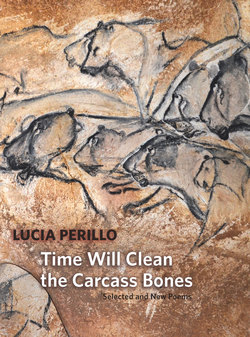Читать книгу Time Will Clean the Carcass Bones - Lucia Perillo - Страница 23
На сайте Литреса книга снята с продажи.
ОглавлениеNeedles
So first there’s the chemo: three sticks, once a week,
twenty-six weeks.
Then you add interferon: one stick, three times a week,
forever.
And then there’s the blood tests. How many blood tests?
(Too many to count.)
Add all the sticks up and they come down to this: either
your coming out clean
or else… well, nobody’s talking
about the B-side,
an or else that plows through your life like a combine
driven at stock-car speed,
shucking the past into two piles: things that mattered
and things that didn’t.
And the first pile looks so small when you think of
everything you haven’t done —
never seeing the Serengeti or Graceland, never running
with the bulls in Spain.
Not to mention all the women you haven’t done yet!—
and double that number of breasts.
Okay—
you’ve got a woman, a good woman, make no mistake.
But how come you get just one woman when you’re getting
many lifetimes’ worth of sticks?
Where is the justice in that? You feel like someone
who’s run out of clean clothes
with laundry day still half a week away; all those women
you tossed in the pile
marked things that didn’t matter, now you can’t help but
drag them out.
Like the blond on trail crew who lugged the chain saw
on her shoulder up a mountain
and bucked up chunks of blighted trees — how could you
have forgotten
how her arms quaked when the saw whined and the muscles
went liquid in her quads,
or the sweaty patch on her chest where a mosaic formed
of shiny flies and moss?
Or that swarthy-haired dancer, her underpants hooked
across her face like the Lone Ranger,
the one your friends paid to come to the table, where
she pawed and made you blush:
How come yer getting married when you could be muff-diving
every night?
At college they swore it was John Dewey, they swore
by the quadruped Rousseau,
and it took cancer to step up and punch your gut
before you figured
that all along immortal truth’s one best embodiment
was just
some sixteen-year-old table-dancing on a forged ID
at Ponders Corners.
You should have bought a red sports car, skimmed it under
the descending arms at the railroad crossing,
the blond and brunette beside you under its moonroof
and everything smelling of leather —
yes yes—this has been your flaw: how you have always
turned away from the moment
your life was about to be stripped so the bone of it
lies bare and glittering.
You even tried wearing a White Sox cap to bed but its bill
nearly put your wife’s eye out.
So now you’re left no choice but going capless, scarred;
you must stand erect;
you must unveil yourself as a bald man in that most
treacherous darkness.
You remember the first night your parents left town, left
you home without a sitter.
Two friends came over and one of them drove the Mercury
your dad had parked stalwartly
in the drive (you didn’t know how yet) — took it down
to some skinny junkie’s place
in Wicker Park, cousin of a friend of a cousin, friend
of a cousin of a friend,
what did it matter but that his name was Sczabo.
Sczabo! —
as though this guy were a skin disease, or a magician
about to make doves appear.
What he did was tie off your friends with a surgical tube,
piece of lurid chitterling
smudged with grease along its length. Then needle, spoon —
he did the whole bit,
it was just like in the movies, only your turn turned you
chicken (or were you defiant? — )
Somebody’s got to drive home, and that’s what you did
though you’d never
made it even as far as the driveway’s end before your dad
put his foot over the transmission hump
to forestall some calamity he thought would compromise
the hedges.
All the way back to Evanston you piloted the Mercury
like General Montgomery in his tank,
your friends huddled in the backseat, spines coiled,
arms cradled to their ribs —
as though each held a baby being rocked too furiously
for any payoff less than panic.
It’s the same motion your wife blames on some blown-out
muscle in her chest
when at the end of making love she pitches violently,
except instead of saying
something normal like god or jesus she screams ow! ow!
and afterward,
when you try sorting out her pleasure from her pain,
she refuses you the difference.
Maybe you wish you took the needle at Sczabo’s place —
what’s one more stick
among the many you’ll endure, your two friends not such
a far cry from being women,
machines shaking and arching in the wide backseat
as Sczabo’s doves appeared —
or so you thought then, though now you understand
all the gestures the body will employ
just to keep from puking. Snow was damping the concrete
and icing the trees,
a silence stoppered in the back of your friends’ throats
as you let the Mercury’s wheel pass
hand over hand, steering into the fishtails, remembering
your dad’s admonition:
when everything goes to hell the worst you can do
is hit the brakes.
